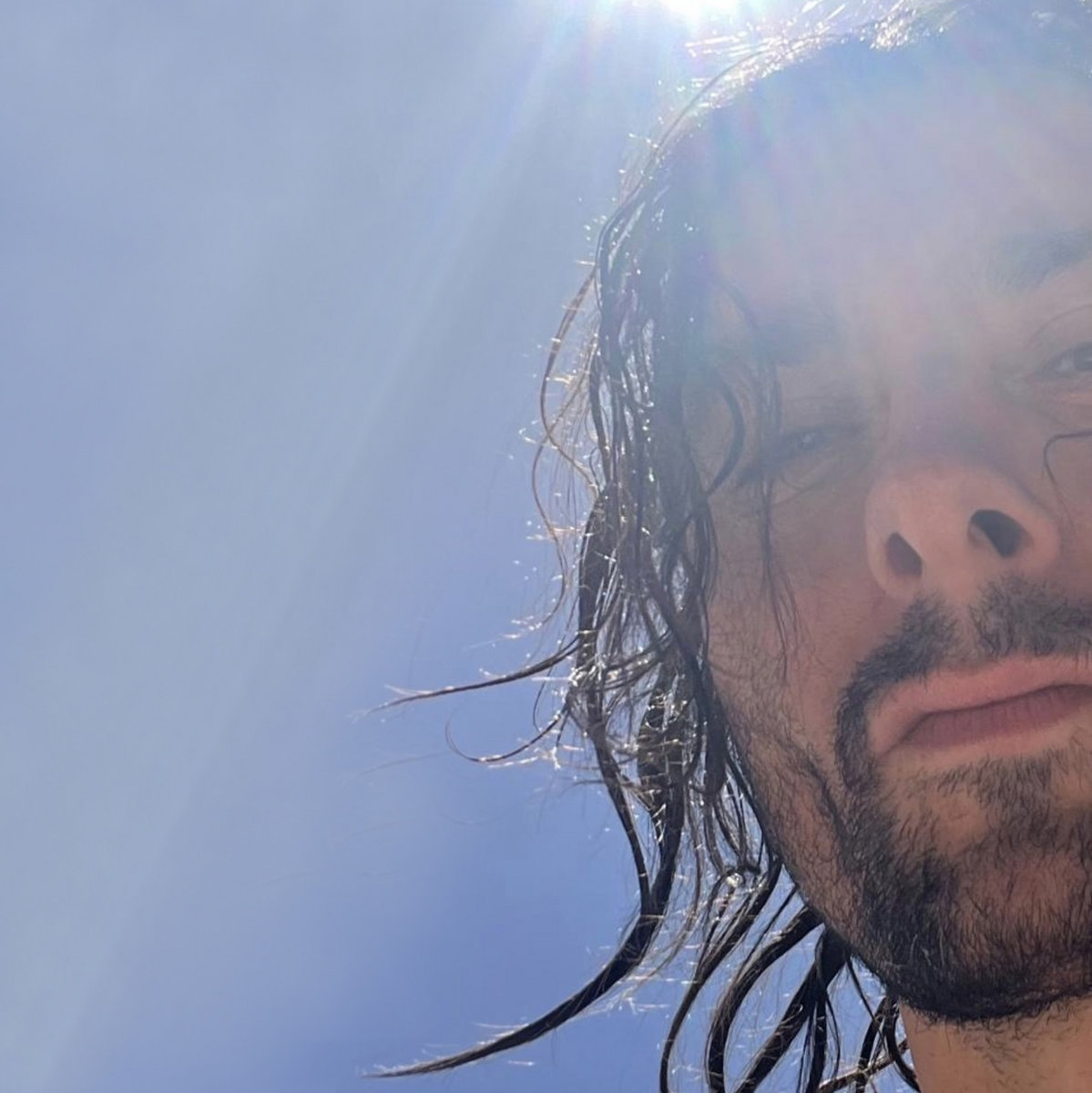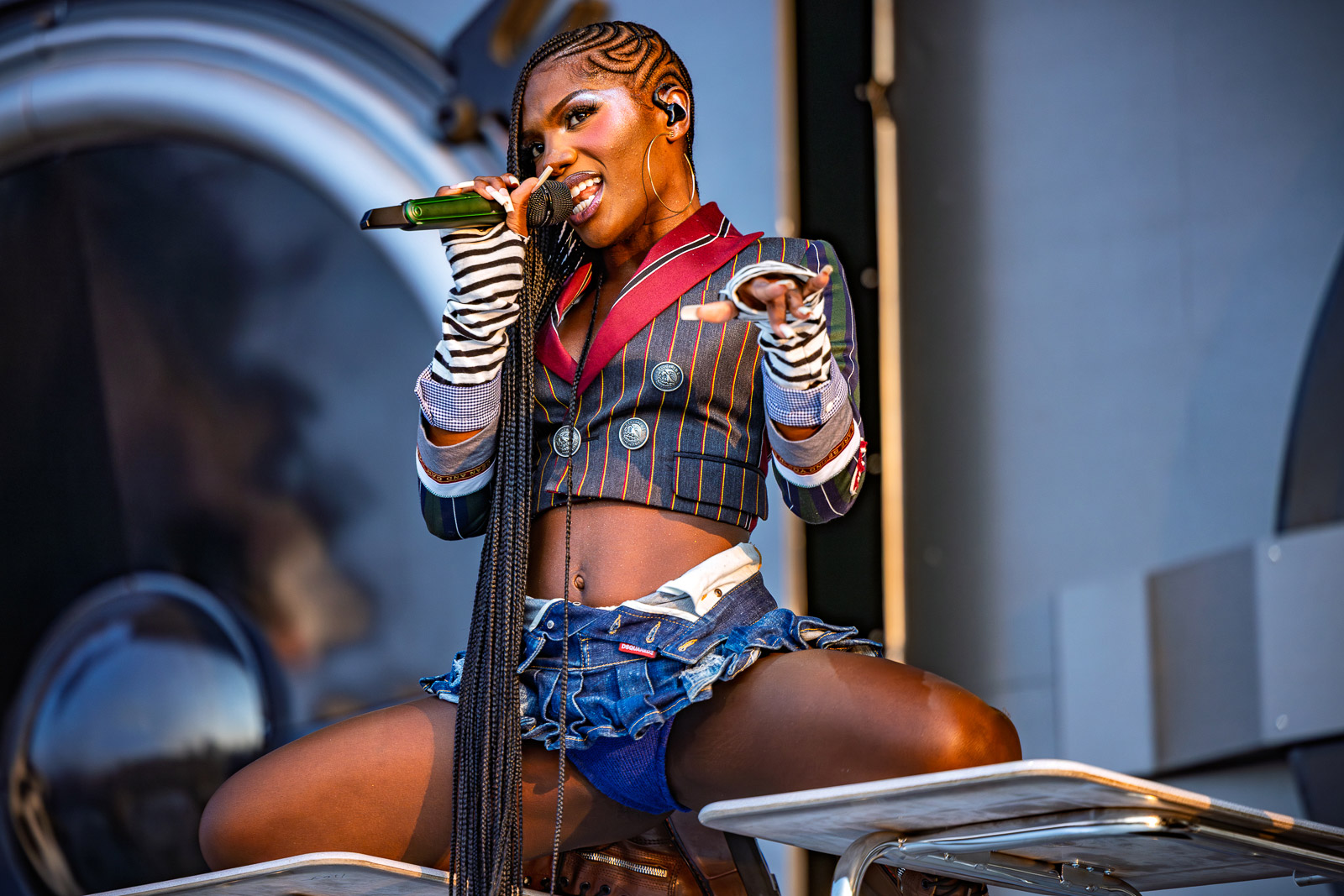

Photography courtesy of LEILAH
In a 1995 interview, electronic music pioneer Richard D. James – better known as Aphex Twin – said that “electronic music isn’t meant to be talked about.”
He was referring to his own evasiveness about publicity surrounding his music, but taking that quote at more than face value it seems to say something interesting about how artists – particularly those in electronic spaces – handle presenting their ‘identity.’
Will their aesthetic be more abstract, and Kraftwerk-esque – one that’s hard to talk about, with lyrics that may or may not be about them? Or does that evasiveness always lead them back to making a statement about ‘who they are’?
London musician LEILAH is aware of this conflict, and dramatizes it in her debut EP, LOST THE PLOT – through an eight-song tracklist, she oscillates between characters and personas, with the instrumental and lyrical pallets tilting from the emotional and ambient to the irreverent and danceable. At the end of the day, however, it’s all about her – and she knows it.
Get the Best Fit take on the week in music direct to your inbox every Friday
This creative concern with ‘identity’ starts right from when you first set your eyes on the double-take-inducing cover. It depicts LEILAH embodying famous sci-fi villain Griffin, from the 1897 H.G Wells novel The Invisible Man: white bandages, dark glasses, thick coat… it’s uncanny and disconcerting – one of those few-and-far-between types of cover art that really gets you speculating on the story that the music inside is going to tell.
“It felt like, ‘Who is the character of this EP? What do they look like? Who do I want to embody?’,” says LEILAH. “I ended up looking that way – not necessarily as a reference, just as an example of how I felt. But understanding that story, it’s that sense of things going wrong: He looks like that because it all went wrong. So I look like that because everything feels like it’s going wrong. I saw that visual and thought, ‘Yeah, that’s how I feel: beaten up, bruised, burned, and I’ve made it out alive, but bandaged.’”
When LEILAH’s career first started gathering steam, she found herself met with an uncertainty about what type of artist she would end up being.
Picked up by London agency Native Management, while still in her second year at Uni, she was, at the time, playing guitar while in a “neo soul and Tracy Chapman space,” she tells me. Then, finding herself on Native Management’s intriguing roster, comprised of Mura Masa, Tirzah, and Jadu Heart, among others, a move to electronic spaces seemed natural, mainly via songwriting for others, and earning publishing rights while doing so.

“I’ve been fortunate that a lot of the people I started working with knew others who happened to be connected to areas of music that I wouldn’t have found myself,” says LEILAH. “By working with, for example, Mura Masa, and then working with SBTRKT – I met people who are friends with them, and then it’s like, ‘Oh, Speaker’s Corner Quartet want to do something. That’s cool.’ From there, they’ve got the Sampha and even Ezra Collective connections. It just starts to expand.”
These collabs were hardly insignificant. With no less than six feature credits on releases by giants of indie-tinged dance music – Mura Masa and SBTRKT, plus two with the unofficial caretakers of grassroots music in Brixton, Speaker’s Corner Quartet – you’d think that LEILAH would then feel on top of the world. LOST THE PLOT, however, tells a different story – one imbued with feelings of vulnerability, and sometimes abandonment.
Take “WILDGROWTH”: a nocturnal tune, well-suited for night-time drives, and channelling serene, synthy trip-hop reminiscent of FKA Twigs. The lyrics provide hard-hitting insights into LEILAH’s mindset, with such lines as: “First you gotta stand by me – arm bands and a deep mind, baby I know / always been a star in your telescope, can I swim into your arms when I'm out of hope?”
“2024 was so chaotic, difficult, and troublesome. I had started two projects that fell through before I started on LOST THE PLOT,” says LEILAH. “‘WILDGROWTH’ came about because I was having conversations with my management, at the time, and they were saying, ‘We don’t know if this is working, and we don’t know where we’re going to go from here.’ I just hate that when things don’t happen immediately, or when people don’t show up as their best self, we want to give up. And that was the conversation that led to writing ‘WILDGROWTH’. I moved it into a relationship space because I felt like it applied to lots of different areas.”
Get the Best Fit take on the week in music direct to your inbox every Friday
The implication through lots of songs on LOST THE PLOT is that we’re all complex, multi-faceted, chaotic people – that’s something we have to accept, and make the best of. The title track, for example, is an abstract treatise on making sense of what we’re thinking in this fragmented modern world, set against frenetic, SOPHIE-tinged production – lyrics posing questions like “are we gods or mortal men?” and referring to “all the tunnels in [LEILAH’s] head.”
And just like the lyrics portray people as constantly changing – in motion – they also sprang from being in motion. The songwriting process was haphazard, sometimes dangerous, and always came about when LEILAH was getting from place to place. “I went through it,” she tells me, mentioning close calls with about four cars and nearly losing a bag in a bus door, all while writing lyrics in her head or on her phone.
“For other people, I go into a session, we sit, I ask what they want to write about, and the song forms with intention,” says LEILAH. “But with my own music I don’t always know what I want to say until I’m not thinking about it. I find that a lot when I’m on planes – thinking about life, missing home, and people – the song starts to form. But if I sat down to do that I don’t think my brain would know what to reach for.”
While lyrics would often emerge at inconvenient times, constructing the EP instrumentation was an incremental process between LEILAH and Sam ‘Congee’ Tsang: north London-based producer extraordinaire with credits on Griff, Ed Sheeran, and Sigrid releases.
LEILAH would produce the songs in their most skeletal form and bring them to Congee, resulting in a pretty exciting instrumental palette. It oscillates from melodic, ambient poems, like “Arion Ater”, to industrial dance bangers where LEILAH’s soulful vocals tilt into rap, like “Speedy Gonzalez”.
“I don’t know if it’s the electronic culture that I’ve been surrounded by for a while coming through,” LEILAH says, “but it ended up sounding a lot more from the same palette than expected. Congee would say ‘the bones are a lot more cohesive than you think.’ He added his own influences – it was really cool having his Chinese culture come in, via the sounds that he was picking.”

Whether we’re talking about the production or lyrics, they’re both great insights into LEILAH’s close-knit creative process that she never lets grow beyond her control. This also applies to her decision, up until the present and for the discernible future, to hide her face onstage, on socials, and in cover art.
That wasn’t the plan from the start – it stemmed from touring with SBTRKT from 2023. To match the producer’s faceless persona, LEILAH planned to mask up while singing onstage (although it turned out that 2023 would mark the grand, SBTRKT unmasking). Sticking with the bit and starting to receive press and label pushback for not revealing her face, LEILAH realised that this would be an important gesture for her sense of self.
“People say they love the whole mysterious mask situation. But it’s not really about mystery, it’s about agency,” says LEILAH. “I don’t think choosing to opt in or opt out of posting my face, body, or life should be radical. But it feels like it’s a bit more of a statement than I intended it to be. At this moment, I’m choosing to present as the character that supports my EP.”
It’s the natural decision for an artist whose early career has been marked by a grappling with the self. Should she write more for herself, or for others? Is she in a space mostly defined by her early, soul and gospel influences or her later, electronic-leaning projects?
Finding solace in that uncertainty, LOST THE PLOT tells you all you need to know about the person behind the bandages – and by the end, ironically, LEILAH is about as far from an invisible woman as she can get.
LOST THE PLOT is released 26 August via VLF

 1 day ago
6
1 day ago
6


















 English (US) ·
English (US) ·